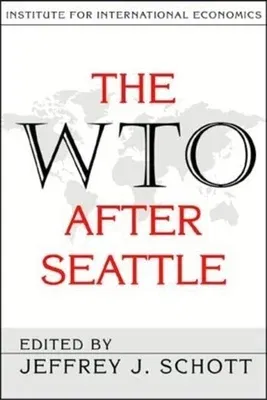The failure of the Seattle trade ministerial in December 1999 to launch
a new round of multilateral trade negotiations dealt a major blow to the
World Trade Organization (WTO). The Seattle meetings exposed significant
policy differences among the WTO member countries as well as
shortcomings in the manner in which the WTO conducts its business and
interacts with other international and nongovernmental organizations.
The WTO after Seattle analyzes the problems and challenges facing the
trading system in the aftermath of the Seattle ministerial. Leading
trade experts examine why it is in the interests of both developed and
developing countries to reengage in new trade talks, and how such talks
could promote world trade and economic development, reform WTO
operations, and strengthen public support for the trading system. The
volume presents balanced perspectives on world trade problems by authors
from the United States, Europe, Asia, and Latin America, with
recommendations on what needs to be done in key areas to launch new
talks. The authors address the WTO's existing mandate to negotiate on
agriculture and services, as well as how to handle new issues such as
investment, competition policy, e-commerce, and trade-related
environmental and labor issues. The editor, Jeffrey J. Schott, provides
a comprehensive overview of the issues before the WTO and what needs to
be done to begin a new round.

